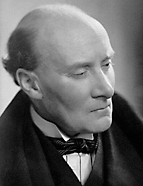

Throughout the book, the historian described and analysed the most remarkable events in Prince Henry’s life, and consequently in his maritime project, distinguishing different motivations to its development. He identified, on the one hand, the aspiration of discovering the maritime course to India – an idea that had been widespread in the Portuguese historiography since the sixteenth century but was questioned by Duarte Leite in the 1930s – as the primary motivation for that project. For Beazley, that plan was conceived not only “for the sake of the new knowledge itself” but also because of the power that would arise from it. Connected to this discovery, it will have been the Prince’s intention to obtain income from the explorations made along the African coast, and, later, in Asian territory. According to the historian, “the chief hope of Henry’s captains was that the wealth now flowing by the overland […] would in time […] go by the water way”. He underlined, on the other hand, the missionary character of the maritime enterprise of Prince Henry, considering it to be a Crusade, since that, aside from discovering and trading, the Portuguese navigators will have had the conversion of peoples to Christianity and the war against Muslims as motivation. (Prince Henry…, 1895, pp. 139-142).
Although Prince Henry is clearly the core of this biography, Beazley has presented in it an interpretation of the Portuguese past that is worth noting. The formation of Portugal and the maintenance of its independency throughout time are, as it is well known, aspects that aroused interest among foreign historians in the second half of the nineteenth century and in the first decades of the following one. Framed in the British historiographical trend of his time, Raymond Beazley advocated a “kind of social Darwinism applied to national histories”, upholding the idea that nations are among the best examples of the survival of the fittest (Jorge Borges de Macedo, A Historiografia Britânica..., 1973, p. 27). Portugal is, in his opinion, one of those examples, not only because it managed to keep its autonomy during the first centuries of its existence, but also because it has demonstrated resistance and a “stubborn restless independence of the people”. Such development of Portugal during the Middle Ages and the staunch defence of its independence will have enabled the Portuguese kingdom to become, according to Beazley, the most developed of all Christian kingdoms when reached the fourteenth and fifteenth centuries. During this period, Portugal made use of its maritime instinct and took over a central position in the European transition from the Medieval to the Early Modern era, not only because of having transformed the maritime exploration into a “systematic and continuous” project, but also by making the Portuguese the “founders of our commercial civilisation, and of the European empire in Asia” (Prince Henry…, 1895, pp. 125-126, 144).
